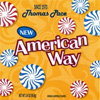I’ll never forget the summer my family drove down to St. Louis for our vacation. I was probably around eleven. It was kind of exciting because we’d be taking our brand-new-used-van which was a luxurious contrast from the aged and recently retired station wagon of prior road trips. Simulated wood grain panels not withstanding.
I remember, vividly, finally getting my turn to sit in the front passenger seat. An honor that included unilateral control of the music selection. And even though we’d already heard it on that drive, I chose to play a well worn cassette tape of our favorite John Prine songs that we’d recorded from his vinyl records on our home stereo. A tape that was a listening staple in our household for many years.
I sat in the sun, in the front seat of the van, next to my father as he drove, and we listened to songs like, “Fish and Whistle,” “Dear Abby,” and “Chain of Sorrow.” And I remember talking with my father about those songs and the stories they told.
On that beat up old cassette was one of Prine’s better-known songs called, “Paradise.” A story in which the narrator laments that his family can never return “home” because, “Mr. Peabody’s coal train has hauled it away.” I recall my father helping me understand that that song is about what can happen to a mining town when the coal company pulls up stakes and abandons it.
I don’t really remember too much more about that trip. The zoo. A Cardinals game.
I do, however, remember how those songs were still playing through my head during our visit the the Arch. It was a thrill to get in the tiny elevator that shuttled you to the top. The view was wonderful and dizzying. But it’s actually the view that we had when we came back down that is etched fast into my memory. It’s the view we had from along the river bank that I will never forget.
It’s been a while since I’ve been to St. Louis, but in 1981, if you stood by the water near the St Louis Arch and looked across the river, you would have seen a giant sign that, to my recollection, read, “PEABODY.”
When my father confirmed that it was indeed a sign for the very same company we’d been listening to John Prine sing about, the story of “Paradise” became real. The people, the places, the coal company, they shifted from fictitious folk tale heroes and villains, to honest flesh, bone, and earth and soil.
This is when I started to understand that music, especially folk music, is a lot more than clever little stories that rhyme. It’s about more than the turning of a humorous phrase, more than sweet harmonies and acoustic guitars.
That day by the river I learned that music is about real people and their untold histories.
Music is journalism.
Music is activism.
Music is about justice, and who gets it and who is denied.
Music is about hearing the voice of the voiceless and about bringing power to the people.
Music is how we win in the long run.
So take heart.
Though he has left us at a time when it seems like we need him more than ever, we find we still have everything he taught us.
Which leaves us in good hands.
It leaves us in each others hands.
Thank You, Mr. John Prine.



Comments on this entry are closed.